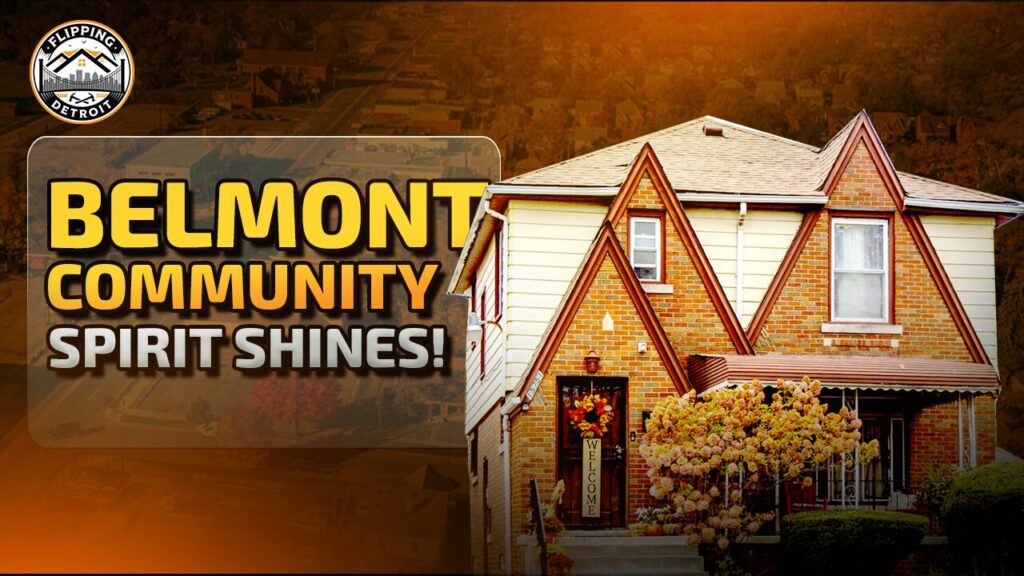
Belmont is a charming Northwest Detroit neighborhood that got its start during the city’s mid-twentieth-century suburban expansion period, which saw a boom in people trying to escape the city’s industrial core for a quieter way of life.
It’s an affordable and peaceful pocket of the city with well-maintained brick homes, shaded blocks, and easy access to schools, parks, and Detroit’s main entertainment arteries.
Housing, Architecture, and Pricing
Belmont’s median home value sits around $70,000 to $80,000, making it a very attractive option for first-time buyers and investors alike.
Architecture here is dominated by ranch houses, small colonial-style homes, and brick bungalows, many of which were built between the 1930s and 1950s and feature details like decorative stone, wood trim, and large front porches that encourage warm neighborly relations.
Another huge perk is that over sixty percent of the homes in Belmont are owner-occupied, which speaks to its huge presence of multi-generational residents who have stuck around even in the face of steep citywide decline.
Schools and Recreation
Belmont residents are zoned through the Detroit Public Schools Community District, with most younger students attending John R. King Academic and Performing Arts Academy before continuing on to Renaissance High School, best known for its Advanced Placement courses and dual-enrollment partnerships with Detroit area colleges.
As for outdoor space and recreation, the nearby Peterson Playfield has everything from basketball and tennis courts to a playground, a splash pad, and baseball diamonds.
There’s also Puritan-Coyle Park right within walking distance, loved for its open fields for sports, picnics, and neighborhood gatherings.
Both parks serve as strong community anchors, connecting residents across generations and providing local children with plenty of great outdoor recreation opportunities.
Challenges, Community, and Culture
Much like all Detroit neighborhoods since the recession, Belmont has dealt with its fair share of struggles, from dilapidated infrastructure, abandoned properties, and a lack of ongoing maintenance from the city.
That said, residents remain loyal and proactive, doing what they can to fight back by participating in monthly clean-ups, organizing block clubs, and lending their eyes and ears to neighborhood watch groups to help keep the area safe and protected.
Final Word
In short, Belmont may not be the most buzzed-about Detroit neighborhood, yet it reflects the city’s enduring spirit all the same: hardworking, resilient, and equally focused on its eclectic past and exciting future.
As city investment continues to expand westward, the neighborhood’s affordability and location could make it a hot spot for investors and further transformation efforts.
Only time will tell.


 Please check your email for your login details.
Please check your email for your login details.